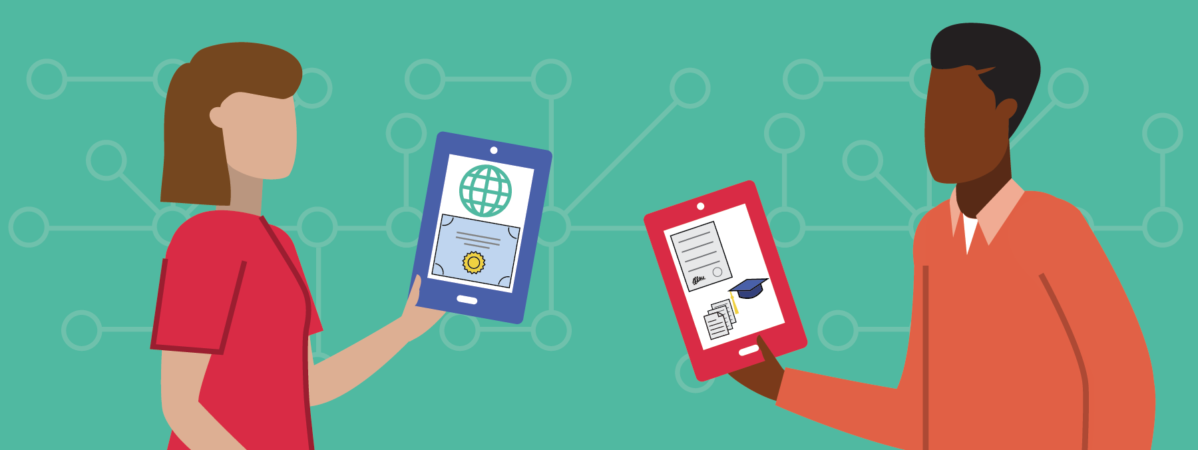
April 11, 2022 | By Sierra Noakes and Kelly Page
At Digital Promise, the Adult Learning, Marketplace, and Learning and Employment Innovations teams have been collaborating on research about LERs—digital records of an individual’s skills, credentials, diplomas, and employment history.
Since 2019, Digital Promise has worked with people across adult education, career and employment services, and employers to learn how to turn today’s fragmented system into a learner/worker-centered, collaborative, data-driven ecosystem. Based on the research and experiences of adult learners and frontline workers, we concluded that LERs hold promise for recognizing skills and mitigating bias in the future of learning and employment only if learner voices are prioritized in their design and implementation.
The launch of LERs has also spurred inquiry into their design and development as a way to build solutions that meet diverse needs and address systemic inequities in learning and employment practices. To address the needs of today’s learners and workers—especially learners who are Black, Latino, and experiencing poverty—and education providers, their lived experiences and expertise must be central to the technology’s design.
Using our approach for Inclusive Innovation, Digital Promise is currently engaged in developing a series of Inclusive LER Design Principles (forthcoming, April 2022) which will inform the development of one of two eventual LER Product Certifications. The certifications will guide developers in the design of LERs for all learners and workers. Digital Promise Product Certifications are co-designed with consumers to communicate user expectations for a technology product, with a credible third party verifying whether a product has met those expectations to support adoption and use.
Our team plans to adopt the principles as the criteria for an Inclusive Design LER Certification and build a competency and evidence-based process for LER developers to earn recognition. We will begin testing the certification with LER Pilots in April. This summer, we’ll leverage the same co-design process with adult learners/frontline workers to identify and understand priorities in designing LERs for learning transitions and credit mobility, and use those lessons to drive the criteria for the Learning Transitions LER Certification.
For more information, read our latest press release.
If you’d like to stay up-to-date on this work, including opportunities to participate in this summer’s co-design sessions for adult learners or LER Pilots interested in testing the certification applications, follow the Adult Learning Spotlight for updates and reach out to productcertifications@digitalpromise.org to get involved.
This work is funded by the Bill & Melinda Gates Foundation.
By Dr. Julio Vazquez and Dr. Kyle Dunbar